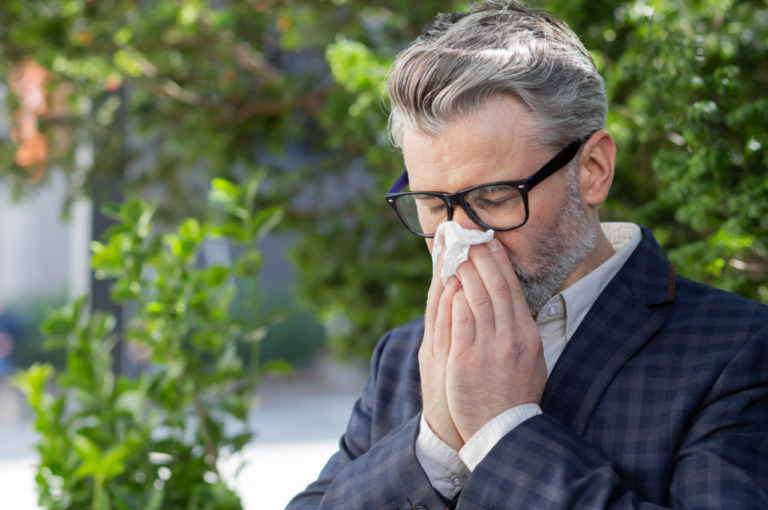Can allergies cause dry eyes? Yes! Allergy season is the worst time of year for people with dry eye. Symptoms of itchiness, blurry vision, and watery eyes are often exacerbated by blooming flowers, trees, and yard work, making it impossible to enjoy your everyday life.
Thankfully, you can take steps to protect your eyes and reduce painful symptoms. And if these don’t work, our dedicated team at Florida Eye Specialists, including our dry eye specialist Dr. Kimberly Riordan, is here to help.
Can Allergies Cause Dry Eyes?
Yes. During the spring, as the weather becomes warmer, allergens are at their peak from heavy tree pollen production and blossoming flowers. This causes our immune systems to produce a chemical known as histamine when reacting to allergens.
Histamine is known to cause eye inflammation and irritation, which leads to redness, itchiness, and discomfort. Individuals may experience these systems during the fall season when temperatures lower and the air is drier.
Activities such as pulling up old flower beds and raking or blowing leaves can expose your eyes to more irritants. If you suffer from allergies to particles like pollen, ragweed, mold spores, and more, avoid outdoor activities during allergy seasons to protect your eyes and minimize discomfort.
Symptoms of Dry Eye
The most common symptoms of seasonal dry eye include:
- Itchiness
- Burning/stinging
- Watery eyes
- Redness
- Excessive eye rubbing
Tips to Prevent Dry Eye During Allergy Season
You can protect yourself from seasonal dry eye and minimize your allergy symptoms with just a few simple steps. Some of our top tips and treatments include:
Avoid Eye Rubbing
Rubbing your eyes can further irritate them and worsen seasonal dry eye symptoms. Instead, try using a cold compress to alleviate itching and swelling.
Use Artificial Tears
Over-the-counter artificial tears can help lubricate your eyes and relieve seasonal allergy symptoms. Invest in preservative-free options to protect your eyes and avoid allergic reactions.
Avoid Contact Lenses
Contact lenses, especially those worn monthly or biweekly, can further irritate and dehydrate your eyes. If you must wear them, follow proper hygiene practices such as disinfecting your lenses nightly. Otherwise, avoid use during peak allergy season or invest in disposable lenses that can be replaced daily.
Stay Hydrated
Drink plenty of water to keep your eyes moist and healthy. Avoid drinking too much caffeine or alcohol, which can dehydrate your body and worsen your seasonal allergy symptoms.
Avoid Allergens
Stay indoors during peak pollen season as much as you can. Keep your windows and doors closed, and use air conditioning to filter the air. If you have pets, use a HEPA air filter to remove pet dander from the air. Wash your hands frequently to avoid spreading allergens.
Limit Screen Time
Take breaks from staring at screens, such as your computer or phone, and blink frequently to keep your eyes moist. Too much screen time can cause your tears to evaporate and prolong your seasonal dry eye symptoms.
Latest Treatment for Dry Eye Syndrome
If you are still experiencing symptoms of dry eye, there are many new treatments we can explore in the office. Lid hygiene measures like warm compresses and eyelid massages are effective ways to soothe and relieve your eyes instantly.
In addition to artificial tears, other treatment methods include artificial gels or medicated eye drops. Moisture chamber goggles and intense pulse light therapy have also been proven to relieve dry eye symptoms. Regardless of your treatment path, our Florida Eye Specialists team is here to help.
Dry Eye Specialists of Jacksonville, FL
As the warmer seasons approach, keep your eyes protected from allergens to prevent painful symptoms of seasonal dry eye. Be proactive and schedule an appointment with one of the dry eye specialists at Florida Eye Specialists today.

